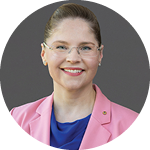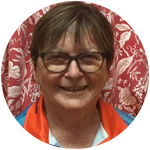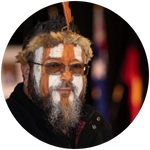Don't miss your chance to hear from our amazing line-up of speakers! Get in the know about your industry and secure your spot at our online event - A Voice to Lead Global Health.
Jane Bollen
Adj Assoc Prof Elizabeth Dabars AM
Associate Professor Judy Duchscher
Caterina Feltrin
Karen Glaetzer AM
Wendy Hall
Terrie (Tess) Ivanhoe
Emily Pumpa
Justyna Rosa
Dr Nina Sivertsen
Kaurna Elder Uncle Tamaru

Jane Bollen
Jane is a Primary Healthcare Nurse Consultant for BMP Healthcare Consulting. Jane transitioned from a Critical Care and Perioperative nursing career to general practice as part of the GP Plus Practice Nurse Initiative 14 years ago. She has worked as a general practice nurse in several general practices across Adelaide.
At one general practice, Jane set up a Healthy Ageing Clinic. The nurse clinic aimed to deliver more planned and structured care, use GP and nurse time more effectively, and give enhanced access to those patients facing barriers to care.
As part of BMP Healthcare Consulting, Jane educates health professionals on the issues of healthy ageing, frailty, polypharmacy, care coordination and team-based care. She is proficient in using general practice clinical software extraction tools, using practice-based data, and reviewing practice systems to improve operational and clinical effectiveness.
Jane is a past Board Director of the Australian Primary Health Care Nurse Association (APNA). She is the nurse representative on the Royal Australian College of General Practice (RACGP) Expert Committee- Standards of General Practice and the RACGP Standards for General Practice Residential Aged Care Facilities working group.
Jane has also been involved in the Health Care Homes (HCH) resource development working group and train-the-trainer workshops and presented alongside International and National Facilitators. In addition, Healthcare Homes was a Department of Health piloting other models of care for general practice.
Last year Jane chaired the RACGP/APNA Infection Prevention and Control Guidelines for General Practice and other Office Based and community-based practices.
Jane is a Nurse Transformer; and has been involved with the Australian Digital Health Agency, helping boost the digital health literacy of our nursing and general practice workforce.

Adj Assoc Prof Elizabeth Dabars AM
Elizabeth is passionate about promoting and advancing the professional and industrial interests of nurses, midwives and personal care assistants.
CEO/Secretary since March 2008, Elizabeth works tirelessly to achieve the goals of ANMF (SA Branch) and to create a future that our members seek and so justly deserve. She holds qualifications in nursing, education, leadership, management and law, and worked as a solicitor at DBH immediately prior to taking up her current role.

Key Note Speaker - Associate Professor Judy Duchscher
After graduating with a diploma in nursing in 1989, Dr. Duchscher’s early career was focused on developing expertise as a direct care nurse, researcher, leader and educator in cardiothoracic and high acuity (critical care) contexts.
Instrumental to her early development was a 10-year tenure developing and coordinating heart, lung and multiorgan donor transplant teams across Canada and the United States. Judy’s commitment to advanced education can be seen in her acquisition of a Post-Graduate Diploma in Intensive Care Nursing from the University of Manitoba, a Diploma in Cardiovascular Nursing from Stanford University in California, a Clinical Transplant Coordinator Diploma from John’s Hopkins in Baltimore, Critical Care Registered Nurse (CCRN) certification through the American Association of Critical Care Nursing, a Post-RN Baccalaureate and Master’s degree in nursing from the University of Saskatchewan and a PhD from the University of Alberta.
For the past 25 years Dr. Duchscher has been an active researcher and consultant in the area of new graduate professional role transition – work for which she has received 33 national and international grants, awards and scholarships. The findings of her research generated a theory of Transition Shock and a model of the Stages of Transition; most recently Dr. Duchscher completed the development of the Duchscher Professional Role Transition Scale © based on the tenets of transition shock.
Dr. Duchscher has published more than 22 peer-reviewed articles, 2 books, 12 book chapters and the delivery of over 400 keynotes and workshops throughout Canada, the United States, Australia, New Zealand and Asia on the topic of new nurse integration.
In 2003, Dr. Duchscher founded and then served as the Executive Director of a federally registered non-profit nursing organization entitled Nursing The Future (NTF). For 10 years this provincially funded (Saskatchewan Ministry of Health) organization served as a bridge between the ideals taught in undergraduate nursing education and the realities of the ‘real’ world of professional practice, offering grassroots support to graduates struggling with their entry into the workplace, leadership opportunities to students and new graduates who led transition support networks across Canada, and an international conference that supported knowledge translation and dissemination on the topic of professional role transition.
After taking a momentary break in 2014 to return to acutecare where she managed a 41-bed telemetry unit, Dr. Duchscher returned to academia in 2018 as an Associate Professor at Thompson Rivers University and re-engaged in her work with new nurses.
In 2020 she was seconded by the Canadian Nurses Foundation to re-establish NTF ™ as the national platform of support for new nurses in Canada and was recently named the Principal Investigator on a 4 year federal grant to establish a Canadian National New Graduate Nurse Residency Program in collaboration with the Canadian Association of Schools of Nursing (CASN).
Dr. Duchscher maintains that “it is the vision, creativity and passionate commitment of these young professionals, supported by the expert knowledge and practice experience of their senior mentors that will drive nursing and healthcare forward”.

Caterina Feltrin
Caterina Feltrin is an Advanced Nurse Educator, with a clinical background in High Dependency nursing.
Caterina has worked in Nursing Education for ten years and has recently returned to Central Adelaide Local Health Network as a Coordinator in the Early Career Transition Programs, after a secondment to the state-wide re-design of the SA Health Transition to Professional Practice Program project.
Caterina has completed a Masters in Nursing Education by research which resulted in a publication regarding graduate nurse adaptation to individual ward culture.

Karen Glaetzer AM
Karen Glaetzer was the first Nurse in Australia to be endorsed as a Nurse Practitioner in the specialty of Palliative Care.
Before her retirement in March 2018 she worked for almost 30 years for Southern Adelaide Palliative Services and is considered a pioneer in palliative care in South Australia.
She has received numerous awards throughout her carer including an AM in January 2018 for services to nursing, palliative care, people living with motor neurone disease and professional groups and a Churchill Fellowship in 2013 to research the palliative care needs of individuals with Physical and Intellectual Disabilities.
She is currently working casual for Eldercare.

Wendy Hall
Wendy Hall has worked in health and aged care for over 25 years, she is the Director and founder of Dementia Doulas International and author of, Dementia can’t take everything!, The Dementia Doula and, Through the darkness of dementia.
She holds a Bachelor of Nursing, a Diploma of Applied Science (Ambulance Studies), a Certificate IV in Workplace Assessment & Training and a Certificate IV in Celebrancy. Wendy has used her diverse skill set within a variety of settings including the acute care, pre-hospital, community & residential sectors.
Her role in the development of training and mentoring for emerging Dementia Doula’s has been evolving over many years and brings together her areas of passion to better serve those she represents.
Her interactive approach challenges mindsets and encourages those supporting someone or working within the area of dementia to explore a different way of thinking. Her goal is to shift preconceived ideas about existing barriers to dementia care and influence the palliative care space ensuring no one goes it alone.

Terrie Ivahoe
Terrie Ivanhoe has been a nurse for over 50 years, first training at Royal Perth Hospital as a “Nursing Aid” and then studying to be a Registered Nurse at the Western Australian Institute of Technology (now Curtin University) and later at Centre for Remote Health (Flinders University) as a Nurse Practitioner.
Terrie has been a Remote Area Nurse since 2000 and has coordinated the Chronic Disease Program at Nganampa Health Council since 2010.
Terrie works in a multidisciplinary team that strives to improve access to health care for Aboriginal people on the APY Lands and is passionate about sharing remote nursing with anyone that will listen and sharing stories to inspire other nurses to “give it a go”.
Terrie is often asked – what keeps me resilient? "My family, my garden and the relationships I have formed with both my wonderful colleagues and Aboriginal people living in remote Australia."

Emily Pumpa
Emily Pumpa is the Interim Nursing Director, South Australian Voluntary Assisted Dying Care Navigator Service.
Emily is an experienced health professional having spent much of her career as an intensive care nurse, including as an organ donor coordinator.
Emily has post graduate qualifications in nursing and law, and is a passionate advocate for the rights of people at end of life.

Justyna Rosa
Justyna Rosa is the Principal Project Officer in Suicide Prevention and Capacity Building with Wellbeing SA and is the lead for the South Australian Suicide Prevention Networks.
For over 18 years Justyna has worked in mental health and community engagement, across State, Federal Government and non-government organisations. Justyna contributed to the development and delivery of programs for people living with severe and persistent mental illness and complex needs by working closely with cross government, sectors and services to work in a more collaborative, coordinated and integrated way.
Recently, Justyna travelled to Poland to assist Ukrainian refugees. Her experience reinforced the notion of self service to others, sense of purpose, that we all have ways to better support others and our communities, being here or afar.

Dr Nina Sivertsen
Nina Sivertsen is an Indigenous Sámi woman living and working on Kaurna Lands in Australia. She holds a position as Senior Lecturer (Nursing), Flinders University, and Associate Professor, Arctic University of Norway. Her academic work encompasses curriculum design and implementation, with cultural responsiveness in the centre to positively engage students in learning about First Nations health.
In her research, she focuses on community and health systems research in partnership with First Peoples and contributes to restorative policy and practice, especially around women’s health in a socio-political context of assimilation and colonisation. She works in inter-Indigenous settings together with First Nations health professionals from around the world to improve healthcare and health outcomes for all First Nations people.
Nina’s work in the nexus of Indigenous women’s identities, culture, health, and education has led to international recognition as evidenced by her partnerships in Norway, Canada and Australia. She is the recipient of numerous awards; amongst them the 2022 Flinders Reconciliation Award, 2021 Women in Innovation Award, the 2020 Vice-Chancellor’s Award for Innovation in Teaching, as well as being a finalist of the 2021 AFR National Teaching Excellence Awards.
Dr Sivertsen is an active member of many community organisations and academic committees providing space for Indigenous voices within strategic planning, governance, and curriculum. She works with research higher degree students to create new knowledge and build capacity enabling students to fulfil their potential as independent academics and researchers of the future.

Kaurna Elder Uncle Tamaru